It was precisely 33 years ago that he founded CLIO, which is today among the oldest private publishing houses in Serbia. Apart from receiving numerous domestic and regional awards, CLIO has been declared Publisher of the Year at the International Belgrade Book Fair three times. It publishes books of distinctive quality that serve as a source of inspiration in many parts of the academic community. Hamović is also president of the Association of Professional Publishers of Serbia, as well as serving as chairman of the Political Council of the Movement of Free Citizens of Serbia
Public attention is currently focused on a particularly interesting and highly attractive book entitled Sa Cvejom [With Cveja], which represents an unprecedented undertaking in the field of biographical literature in Serbian practises. Delving into the life and work of actor and highly successful director of the Yugoslav Drama Theatre, Branko Cvejić (1946 – 2022), the book is co-published by CLIO and My Balkan. Unusually for the esteemed publishing house’s founder and chief editor, Zoran easily and persuasively explains: “It is extremely important that fragile arts like acting gain lasting insight in the public eye and a longer life. This book is conceived as a testimony. It was written by those who worked with Branko Cvejić, primarily on the stage. However, Cveja, with the diversity of his public activities, ‘called out’ other collaborators to write about him. For me, he is a cultural creator in the fullest sense of the word; a symbol of what we aspire to and what a serious society must have.”
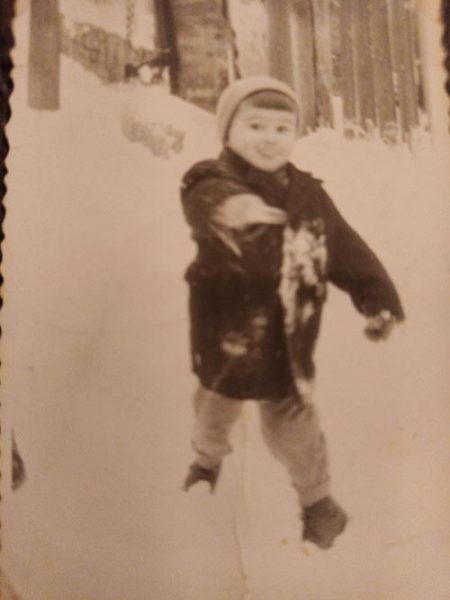
This book came to fruition thanks to Beka Vučo, who did a tremendous job – from initial idea to full realisation. “There are few who can give so much for an artist like her and her organisation, My Balkan. I am very pleased with the excellent collaboration we’ve had,” explains our interlocutor. Zoran (66) was born in Belgrade’s Filmski Grad neighbourhood and spent his early days there. His father, Nikola, a military man originally from Herzegovina, had been waiting to receive an apartment, so they lived with relatives in a hangar in Filmski Grad. It was there that his mother, Dušanka, raised her newborn baby Zoran, who didn’t have a crib and slept on two stools.
“I was an only child and I constantly asked my mother to give me a brother or sister, but my wish was never fulfilled.”
They moved to a new apartment in Voždovac in 1960, when Zoran was just three years old. Something seemingly contained in the dust of Filmski Grad inevitably stuck with him. As a child, he worked as an extra in several domestic films shot in Košutnjak and Pionirski Grad, though he can’t recall exactly which films they were. He only remembers that it was a lot of fun for him as a child. He started school at the Bora Stanković Primary School and was an excellent pupil, but failure to grant his request to be in the class that was learning English prompted his parents to transfer him to the Karađorđe Primary School. Interestingly, these two primary schools are located on the same street – Jove Ilića. One street, two schools, but also two civilisations!
Our task was to address those who think for themselves and move forward, and we have never stopped doing that
He still recalls a situation that illustrates the time in which they lived vividly. He resided in a building that housed a large community of military personnel from across Yugoslavia. Back then, neighbours would congratulate one another on 1st May and 29th November, which was Republic Day. He had a neighbour, an officer, for whom it was essential to prove his loyalty to the new government because he had also been an officer of the royal army in the Kingdom of Yugoslavia.
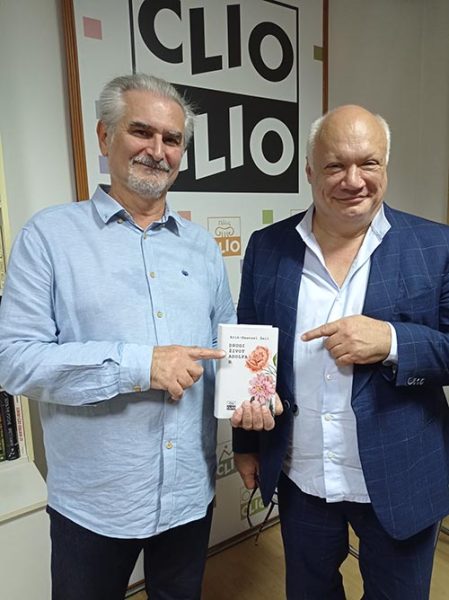
“He was a simple and loyal man who wanted to wish Jovanka Broz, the wife of President Josip Broz Tito, well on 8th March [International Women’s Day]. He wrote everything as he thought best, but instead of signing himself, he signed me, a pioneer, a first-year school pupil, and sent the letter. After some time, a long white envelope arrived at the school, written in beautiful handwriting with the signature of Jovanka Broz. The letter said: Dear Zoran, thank you for your congratulations, and I wish you all the best in school. It’s clear that this letter first arrived at the school director’s office, and he asked the teacher to gather all the students in the hallway to read the letter that our comrade Jovanka Broz had sent to me. So, I undeservedly became a hero that day. I received congratulations for no reason. During school events, when I recited or played the violin, that was an additional factor of ‘fame’.”
He completed the 12th Belgrade Gymnasium high school in Voždovac, and everyone knew that he was a talented painter. Half of the school was adorned with his paintings, and it was expected that he would enrol in the Academy of Fine Arts. Apart from playing the violin, he also played the bassoon, making it clear that he had an artistically inclined soul.
Over these thirty years, we have been publishing the kind of literature that is motivating in formal and informal learning conditions
“I was also an extra in the theatre, jumped into the choir, always wanted to do more because being ‘just’ a high school pupil didn’t fulfil me. The art teacher praised my work and instilled in me the feeling that I was meant to be a painter. That boosted my pride, not my work and talent, for which she wasn’t responsible! I never even considered enrolling in art studies.” The fact that he was born in Filmski Grad still seemed to define him. He applied to the Faculty of Dramatic Arts, majoring in acting. He didn’t pass the second round of the entrance exam because he hadn’t properly memorised something that was mandatory. Many years later, Professor Ognjenka Milićević told him, “I liked you, but you didn’t complete the tasks”.
“I had the idea to simultaneously study acting and literature! I enrolled in Yugoslav literature and spent four dynamic and creative years at the Faculty of Philology. I directed my attention towards writing for ‘Student’, which was my first significant creative challenge. We revived the literary magazine ‘Znak’ [Sign] at the college and its main editor later became Vesna Bjelogrlić, now known as Goldsworthy. During my postgraduate studies, I started collaborating with the magazine ‘Književna kritika’ [Literary Critiques], where I became a member of the editorial board and learned what it was like to work at a publishing house.”
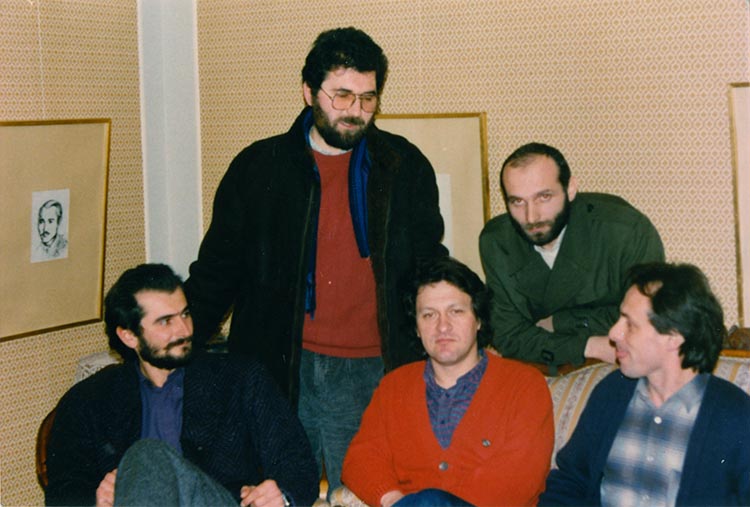
Prior to devoting himself entirely to publishing, Hamović spent four years as a professor at the Institute for Foreign Languages. He taught Serbian to foreigners, an experience that meant a lot to him. Through ‘Književna kritika,’ he then ventured into publishing house Rad, which was then becoming attractive to young people. Its ‘Reč i misao’ [Word and Meaning] series was popular throughout Yugoslavia, because the then country had a large book market. In his four years at Rad, Hamović managed to master all the publishing processes. And so it was that in his 20s he introduced the concept of marketing to Rad. Of course, back then marketing was a newly discovered and foreign word that was often used inappropriately. The formal job title was ‘Head of Propaganda Department’ and something else, which he can’t remember today.
I am interested in the improvement and modernisation of the Book Fair, and its return to the global map of festivals and book fairs
“We wanted to create a modern-conceived publishing house; we had great ambitions and created several fantastic series – ‘Svedočanstva,’ ‘Dijalog,’ ‘Pečat,’ ‘Zmaj’… We also launched a series for young writers called ‘Znakovi pored puta’ [a reference to Ivo Andrić’s famous book Signs by the Roadside], and at the beginning of their careers, authors like Dragan Velikić, Radoslav Vava Petković, David Albahari, Novica Tadić and others were published there. In the end, we modernised Rad, strengthened its identity, changed its image and improved communication throughout Yugoslavia. But the social crisis was getting stronger, the country was approaching the year 1991, when the war essentially began, and the communication systems with Slovenia and Croatia were breaking down. Rad had branches and bookshops throughout Yugoslavia. We had branches in Zagreb and Sarajevo, bookshops in Slavonski Brod, Pula and other cities, not to mention other republics and provinces.
We realised that the time had come to sell all the bookshops located outside of Serbia and Montenegro, to salvage what we could. The editorial board and management consisted of fewer than twenty people, but there were over three hundred employees. At some point, I had to become the commercial director! Almost overnight, Rad, which had been a very successful company until then, sank into confusion. Disagreements, strikes, resignations… It was a time of general upheaval, a period in which shrewd people launched and successfully implemented the transformation of state capital into private capital. Rad was attractive because of its real estate ownership. It rented most of its space, but also owned a significant part of it. The looting of state institutions began and people were displaying their worst side.”
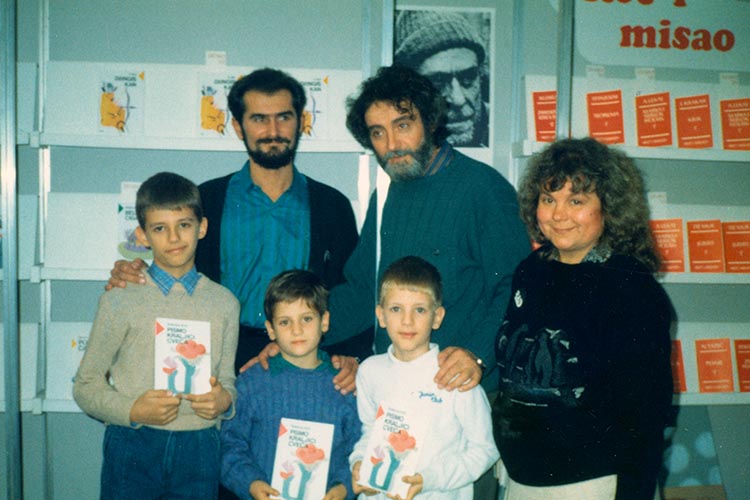
One fateful day, he abandoned Rad to venture into a risky and uncertain entrepreneurial future. He registered his company in December 1990 under the name CLIO, named after the muse who is the patroness of history and writing. That was his idea, a guiding light for what he wanted to do. The journey to official recognition was neither fast nor easy. The first boost came from Intel, a company for which he did some promotional work. In return, he received his first computer, a 386, as the first asset of his future company. CLIO is today probably the oldest private publishing house that continuously publishes books and actively operates on the Serbian publishing scene. With a great reputation and respectable publications, it guarantees quality.
“The first book I published was called ‘Yutlantida,’ a collection of texts by Dragan Velikić published in weekly news magazine Vreme. It was sort of my ID card at the time. Another thing I started and that proved valuable to me as an experience was cooperation with the University of Arts. We needed to reprint Odelo i oružje by Pavle Vasić (1907-1993), a renowned painter, art historian and art critic. And there CLIO was co-signed with the University of Arts. My first dream – to work on books that attracted me and from which I wanted to learn – thus came true.”
The most terrible and enduring consequences for our society are the collapse of the education system and the disdain for education
The CLIO Publishing House, which occupies a beautiful location at the corner of Gospodar Jovanova and Kneginje Ljubice streets, has eight employees and around a hundred regular collaborators. All of this is in the service of hundreds of published books, which mostly reflect Hamović’s refined taste and good knowledge of the market. “For me, the most important question over these thirty-plus years has been: what is the purpose of all this work and all these books? Precisely to gain power, but over knowledge! What are books for if they don’t make us better? I set and, together with my colleagues, fulfilled that task before us, and did so ahead of others. Over these thirty years, we have been publishing the kind of literature that is motivating in formal and informal learning conditions.
From world literature, via history, psychology, sociology, media and culture studies, to art history and theory, marketing and management… Our task was to address – as our motto goes – those who think for themselves and move forward, and we have never stopped thinking and working in this way. CLIO also created a non-governmental organisation called ‘Biblioteka Plus’, which dealt with transfers of knowledge through seminars, conferences and lectures, activities that encouraged informal learning. ‘Biblioteka Plus’ fostered communication not only with the public, but primarily with school libraries, enhancing media literacy among pupils and teachers through a project called ‘Internest’. I would say that the most important task of our house is not just publishing books, but also exchanging ideas. And if we’ve put something on the market, we’ve tried to make it new ideas.”
Through its translations, CLIO Publishing has also contributed to expanding the list of required reading literature and refreshing the curricula in academic communities and universities, including the Faculty of Political Sciences, the Faculty of Philosophy, partly the Faculty of Philology, the University of Arts and many other higher education institutions.
Hamović didn’t shy away from his responsibilities or professional challenges that extended beyond the tasks and duties of CLIO Publishing. He served as the Artistic Director of the Belgrade Book Fair for four years and advised two ministers of culture, Branislav Lečić and Nebojša Bradić. He was well aware of the implications of such an engagement.
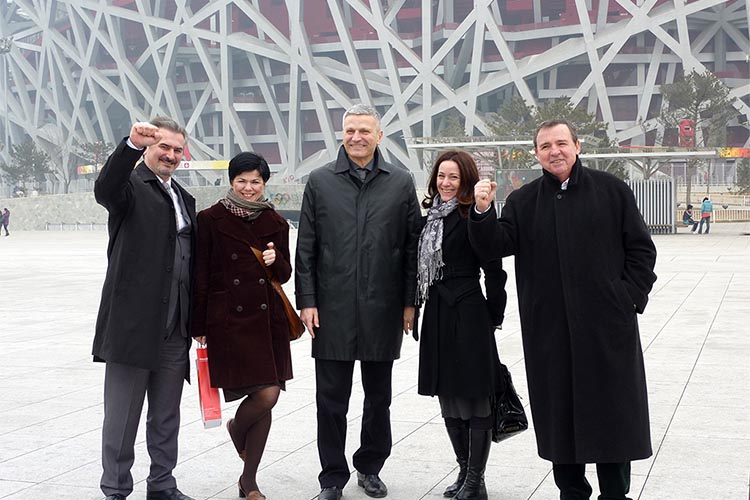
“I knew all the consequences of such an engagement, even more, I anticipated them, but I was determined to make the greatest possible contribution to our profession. One achievement that was undoubtedly significant was Serbia’s participation as a guest of honour at the Leipzig Book Fair in 2011, as well as numerous other fairs from Frankfurt, Paris and Vienna, where we didn’t only present Serbian authors, culture and literature, but also established important individual and institutional connections. Books are important when they bring people together, provide them with creative impetus and a more inspiring life, make them free. If they only serve cheap entertainment, then they are not books, but tabloids in hardcovers…”
He is President of the Association of Professional Publishers of Serbia and has been unwavering in his opposition to the planned relocation of the Book Fair from its current location. “I will never agree to the Book Fair being moved. I am interested in its improvement and modernisation, its return to the world map of festivals and book fairs, and in that sense relieving it of content that does not contribute to that. I have nothing against various exhibitors participating in the planned EXPO 2027 exhibition in Surčin, but the publishers I know and respect will not go there. We will advocate for the tradition not to be interrupted and for professional publishers to gather in the place where they belong.”
He is also Chairman of the Political Council of the Movement of Free Citizens of Serbia and briefly summarises the current positions of the government and the opposition.
“We have learned from history that there is a ‘civilisational manuscript,’ and there is someone who is politically stronger, socially more active and materially superior at any given moment. The opposition is mostly made up of experts, educated people who are trying to prevent the damage caused by irresponsible moves and the abuse of people in power; people who have found themselves in responsible positions without the required knowledge and experience. Therefore, let’s conclude with something related to books and education. The most terrible and enduring consequences for our society are the collapse of the education system and the disdain for education, nurturing the impression among younger generations that diplomas and people can be bought, and books are thrown away; that corruption and prostitution are the only ways to ‘progress’.